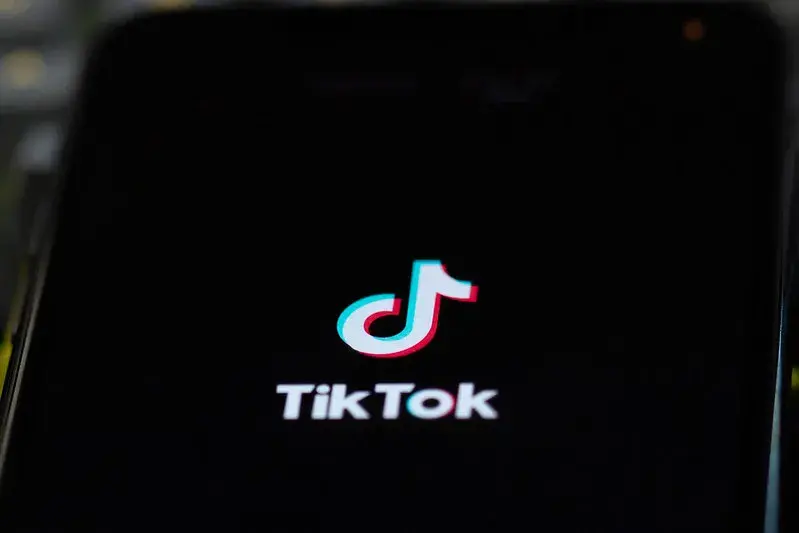The United States House of Representatives passed a bill on Wednesday that gives ByteDance, TikTok parent company, six months to sell its platform to a US company.

The United States Congress has taken the first step to ban TikTok in the country unless it cuts ties with its parent company in China, a move that marks a new low point in relations between the two global powers and reflects the deep distrust in Washington of Beijing’s global influence.
The United States House of Representatives passed a bill on Wednesday that gives ByteDance, TikTok’s parent company, six months to sell its platform to a US company, or else the app will be removed from Apple and Google app stores within the country.
The bill, which was unusually swiftly approved by an overwhelming majority of 352 votes to 65—a bipartisan coalition atypical for the current era of deep division—is now in the hands of the Senate, where its approval is uncertain. The initiative has the backing of the White House.
TikTok, the fastest-growing social network, especially popular among young people, has become the target of many lawmakers on Capitol Hill, both Democrats and Republicans, who view the platform as a threat to US national security, a Trojan horse of the Chinese Communist Party (CCP) to spy on the country.
The platform has already been banned or restricted in several countries. India and Nepal, neighbors of China, and Afghanistan have directly banned its use. The European Union, Canada, the United Kingdom, Australia, Taiwan, and New Zealand, among others, have prohibited the use of the network on official or public officials’ phones.
Canada stated that the decision was due to the application “presenting an unacceptable level of risk to privacy and security,” showing that concerns about potential data leakage transcend American borders.
In the United States, TikTok has over 150 million users, and its popularity has grown exponentially in recent years. One recent example: President Joe Biden’s campaign recently opened an account on the platform to strengthen its reach to young voters.
His rival, former President Donald Trump, had long been in favor of banning TikTok, but he recently changed his stance because, he said, a ban would benefit Facebook, a platform with which he has been at odds since his accounts were suspended following the January 6, 2021, Capitol attack. Facebook later lifted that suspension, but Trump still considers it “very dishonest.”
The political offensive against the social network reflects the enormous concern and distrust in Washington about China’s advancement in the world, including the virtual world.
“This latest legislation, passed at unprecedented speed, without even the benefit of a public hearing, raises serious constitutional concerns,” said Michael Beckerman, TikTok’s vice president of public policy, in a letter to the bill’s co-sponsors.
The bill’s authors, Republican Congressman Mike Gallagher and Democrat Raja Krishnamoorthi, as well as the White House, argue that the bill is not a ban on TikTok, but rather, on China by ordering the platform to sever ties with ByteDance.
Other lawmakers have adopted the argument. Nancy Pelosi, Speaker Emeritus of the House of Representatives and one of the most influential figures on Capitol Hill, said in her speech on the floor that the intention was to improve the platform, not to ban it.
“It’s not an attempt to ban TikTok. It’s an attempt to improve TikTok,” she said.
TikTok has been in Congress’s sights for some time now. The platform has become one of the main targets, especially for those lawmakers hardest on China, and most concerned, too, about its advancement in the world.
The bipartisan coalition that backed the bill once again reaffirmed that in the United States, China closes the ideological divide: Republicans and Democrats disagree deeply on almost every issue, except that China is a threat. When it comes to facing Beijing, ideological differences are set aside.
“We’ve given TikTok a clear choice,” said Representative Cathy McMorris Rodgers, a Republican from Washington state. “Separate from its parent company ByteDance, which is beholden to the CCP, and remain operational in the United States, or side with the CCP and face the consequences. The choice is TikTok’s,” she said.
China warned on Wednesday that the move “will inevitably backfire on the United States.”
“While the United States has never found evidence that TikTok threatens US national security, it has not stopped suppressing it,” said Foreign Ministry spokesperson Wang Wenbin, condemning it as “bullying behavior.”
TikTok CEO Shou Zi Chew recently attempted to defend the platform before a Senate committee in a highly contentious hearing that laid bare the latent tension between American political power and the platform, widely seen in Washington as a technological tentacle of Beijing.
“TikTok has allowed millions of Americans to express their voices in an authentic way and has provided a global stage for their creativity in a way that cannot be replicated on any other platform or medium,” Chew said.
The executive sought to distance the company from the Chinese Communist Party and provide assurances about user information privacy, the main point of concern for American political spectrum.
“Let me state this unequivocally: ByteDance is not an agent of China or any other country,” Chew asserted towards the end of his testimony at the opening of the hearing.
A particularly heated exchange with Texas Senator Tom Cotton drew much attention during the hearing. Chew is a citizen of Singapore, but Cotton asked him if he also held Chinese citizenship, and whether he held any other passports. Chew replied in the negative. Cotton also asked him if he had ever been a member of the Chinese Communist Party, a question that seemed to unsettle Chew.
“Senator, I am from Singapore. No,” he insisted.







